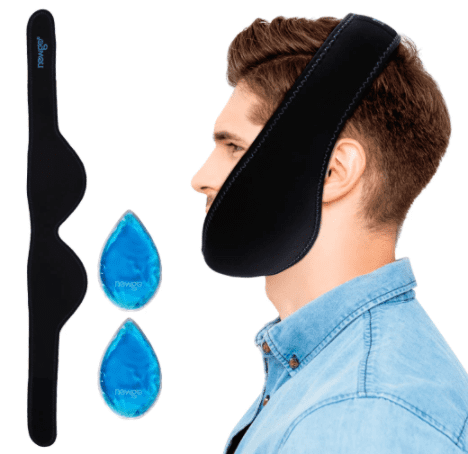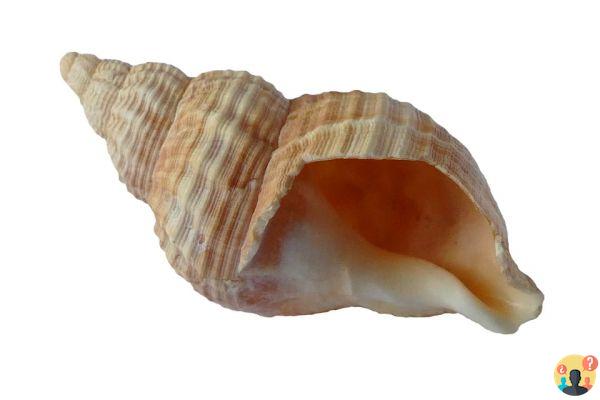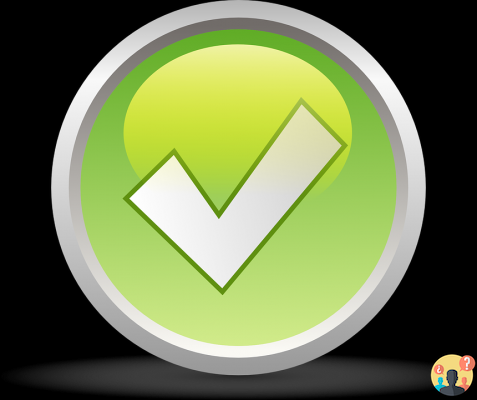
A toothache causes painful discomfort regardless of what time it strikes. Unfortunately, most people find that their symptoms are worse at night when they are trying to sleep. In this article you will know how to sleep with a toothache.
How to sleep with a toothache: The concrete solutions
Do you want to sleep with a toothache without having to implement different natural remedies? Here are the quickest solutions to take the pain away:
- Clove essential oil: In local application, it relieves the area in a few seconds.
- Provisional thoughts: Which limit pain while waiting for healing.
- Le bain de bouche expert: Which cleans the area and removes the discomfort by purifying the painful area.
Notions to understand
When your body is flat, the blood can flow better to the head and neck, increasing the pressure and leaving sensitive parts such as a sore tooth or swollen gum to bear the brunt of the pain.
The most frustrating thing about a nighttime toothache is that the dentist has closed for the day, leaving you alone to suffer through the night with throbbing pain. And that toothache can make it almost impossible to fall asleep.
Fortunately, there are as many remedies to alleviate a toothache as there are ways to develop one.
Here are best solutions to successfully sleep with a toothache:

1. Sleeping with infection-related pain
If your toothache consists of a continuous, painful throbbing that radiates down your jaw and neck, or if your lymph nodes are swollen, it may be the result of an infection in the tooth or gum known as a toothache. 'abscess.
Gingival abscesses are an infection between the tooth and the gum, usually resulting from trapped food particles collecting bacteria in the gum/tooth space.
Abscesses can quickly become a serious health problem, and if the symptoms mentioned above apply to you, then you will need to treat the tooth accordingly, using antiseptic measures against infection (as well as scheduling a dentist appointment).
But until your doctor's appointment, here are some remedies that can be added to your nighttime routine to make sure the pain doesn't interfere with your sleep.
Rinse your mouth with spices before bed
Many spices are naturally antiseptic and, when applied to the source of infection, not only help to curb infection, but also to reduce pain.
The combined properties of a fast-acting localized natural treatment make spices a powerful tool before bedtime in your fight against oral infections and for sleeping with a toothache.
The most commonly used spice for infection-induced toothache is clove (as an oil or in a sachet), although a mixture of cayenne pepper and salt water can also be used with great assured effect.
When using clove oil, the easiest way to apply is to dab a cotton swab with the oil and hold it over the sore tooth. Within minutes, users report a pleasant numbness that allows them to fall asleep without the distraction of constant throbbing pain.
Note: Clove oil is often sold in the organic section of most grocery stores. However, the prices vary from 3 euros to 20 euros.
Cayenne/Salt Water Rinse Recipe:
Mix 5 shakes of cayenne powder with 1 cup of warm water, gargling at 15 minute intervals until the pain is gone.
Caution, swallowing this mixture will burn, so be careful.
Apply an anesthetic paste before going to bed
Although not a permanent solution to a serious oral infection, there is a simple recipe for creating a sticky, numbing paste that you can apply directly to the source of your pain.
Even though gum gels over-the-counter drugs are surprisingly effective at numbing mouth pain, they only work for a short period of time. However, by mixing a numbing solution into a paste, you can extend its window of effectiveness, making it an excellent pain preventative before bedtime.
Here is the recipe:
- 1 teaspoon of vanilla extract
- 1 teaspoon of oral numbing solution such as Oragel
- 1 teaspoon of baking soda
- An aspirin on the floor
- Mix until it turns into a paste.
The paste can now be applied at the source for instant pain relief that lasts long enough for you to fall asleep.
Note: For best results, apply the paste after gargling and rinsing with a salt water solution.

2. Sleeping with swelling pain
Those who have had oral surgery like a root canal or wisdom tooth removal will inevitably experience a lot of painful gum swelling after the surgery.
This tends to make it difficult to carry out doctor's orders to “rest and recover”.
If this is the case for you, then you will need to work hard to keep the swelling to a minimum. One of the easiest and most effective ways to do this is to adjust your sleeping position by sleeping on your back.
How To Sleep With A Toothache: Rest With Your Head Up
While resting with your head at 45 degrees, you prevent blood from pooling and creating swelling in the head and neck, and you help relieve pressure in blood vessels along sensitive gum areas.
Of course, it should be noted that improper use of a pillow can misalign the spine, creating neck and back pain. But a travel pillow helps prevent poor posture during sleep.
Being tilted will keep your head above the heart and pointing down without deteriorating its proper position.
They cost around $20 and you can (and should) continue to use them long after you recover from surgery and/or general oral inflammation.
Eat wisely before bed
In the hours before bedtime, it is important to avoid hot foods which can trigger pain in the swollen areas of the mouth.
Instead, you should use food to your advantage.
Focus on fresh foods and desserts such as chilled fruit or frozen yogurt which will reduce swelling.
Another option is to chew pieces of ice.
3. Sleeping with sinus-related tooth pain
Believe it or not, it's not uncommon for toothaches to be caused by inflamed sinuses and even more agitated by the resulting pressure.
If that's the root of the pain, fear not, because there are a ton of ways to reduce sinus pressure.
Use the Neti Pot at night
This lantern shaped sinus rinser works by sending a saline rinse directly into the nose, through the sinus cavity and out the other nostril, taking all the dried mucous material with it. If you have a stuffy nose, a neti pot is an amazing tool!
By taking such a direct route, the results are immediate and visible.
The Neti Pot works great before bed, as it creates a temporary window of relief allowing you to fall asleep without sinus pressure. With your nasal passages clear, try breathing through your nose. Breathing through your mouth can make your toothache pop.
How To Sleep With A Toothache: Work Your Way To Sleep
Whether it's taking a shower before bed or placing a humidifier on the bedside table, breathing humidified air is a great way to keep your sinuses moist during the winter months and fall asleep without pain induced by inflammation in the nose and gums.
By keeping your airways moist, you are better able to prevent mucus from drying out and clogging the sinus cavity; a problematic combination known to cause swelling and inflammation that spreads to blood vessels in the teeth and gums.
Humidity also prolongs the effects of a sinus rinse, making it an ideal companion for the Neti Pot.
4. General Pain Relief
For all other tooth and gum aches and pains, here are some options to consider:
Ibuprofen, aspirin and acetaminophen
For everything from backaches to ankle sprains, the long-lasting pain-relieving and anti-inflammatory properties of ibuprofen, aspirin, and acetaminophen make them a versatile weapon against widespread pain and swelling.
Taken before bedtime, these fast-acting medications relieve the symptoms of a toothache throughout the night.
Rinse / soak with alcohol
If you're out of mouthwash, hard alcohol can be used as an alternate rinse, as its numbing and disinfecting properties provide instant pain relief.
For prolonged relief, laying down an alcohol-soaked cotton ball while lying down is a simple but effective method of relieving symptoms at night.
Sleep with an ice pack on your pillow
Ice is another cheap, easily accessible natural remedy for generalized pain and swelling. While chewing on ice chips is one way to instantly soften teeth and gums, the main downside is that the ice melts too quickly. It can also be too intense in prolonged use.
For those looking for long-lasting relief without having to continually reinsert tiny shards of ice into the mouth, the alternative is simple and lasts all night:
Simply place an ice pack wrapped in a towel between your pillow and your cheek and let the cold do its thing while you sleep. Most ice packs take at least 2 hours to thaw, allowing a wide window of time to fall asleep with a toothache.
Even better, you can get a toothache-friendly ice pack, like the one below, that will target the pain while you sleep.
Our anti-toothache ice pack

Signs and symptoms of a dental emergency
If you experience any of the following symptoms, you should immediately make an appointment with a dentist:
broken teeth
If you suffer from a broken tooth, you should see a doctor as soon as possible. It's not something to put off until the next morning.
If you absolutely cannot get to a medical professional, rinse with warm water and apply ice to the area.
Among other things, broken teeth pose a risk of infection and require immediate treatment.
Obstruations
Although less serious than a broken tooth, fillings are still considered a medical emergency and it is recommended that you make an appointment with a healthcare professional as soon as possible.
Until the appointment, some over-the-counter pain relievers such as acetaminophen can be used to manage symptoms in the lead up to the appointment.
Oral pain during pregnancy
If pregnant, it is best to play it safe with any suspicious pain or discomfort. The general rule is to make an appointment with a professional of health for any oral pain lasting more than 2-3 days.
Moreover, you should also consult your doctor before taking any of the medicines/supplements/home remedies mentioned above.
Keep all these solutions in mind, you can use them anytime you want to be able to sleep even with a terrible toothache.



























